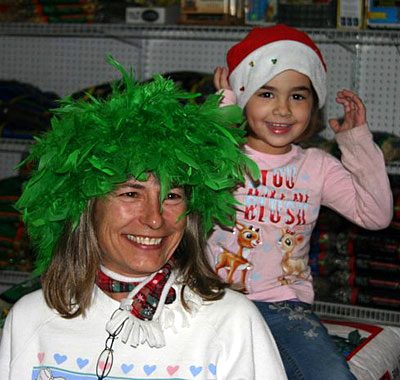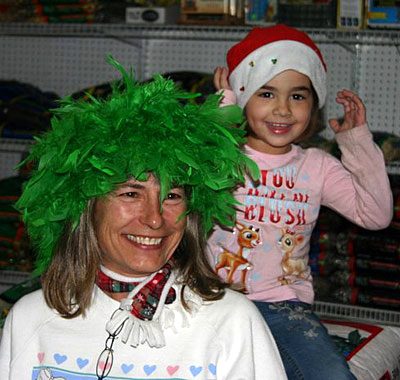

New Orleans animal control officers exhibit guts and heart in the field
Animal control officers despise it when members of the general public label them “dog catchers”. Who can blame them? They are so much more than the dismissive title implies.
These people are essentially the police force for the animals, working the front lines of cruelty and neglect. Dogs neglected on chains. Animals beaten and tortured. Innocent, helpless creatures tossed aside and considered worthless beings. Animal control officers witness scenes daily that would feature in our nightmares for a lifetime. For little pay and no appreciation, in fact downright abuse at times, these people forge ahead without validation because they know that what they are doing is right and just.
The work being done by Louisiana SPCA’s animal control officers takes the challenges in the field to the next level. The city remains devastated by Katrina, with many residents working hard to eke out a living and a lifestyle in a crime-ridden, decimated wasteland.
Shelly Patton, webmaster for Louisiana SPCA, has been a frequent contributor to this blog, engaging us with her insightful comments and gentle thoughts. She went on her first ride-along yesterday. Although I’ve hit the road with animal control many times, it hasn’t hardened my heart to the reality. I sobbed when I read what she wrote, so I wanted to share it with you.
My day with animal control was very enlightening. In the morning, we went on sweeps; four trucks, six officers and me. A sweep is a group of officers hitting an area as a team, “sweeping” through and catching stray dogs. The day is mapped according to "roaming at large" complaints we have received. Whether or not the stray will still be in the area by the time we get there is questionable. However, strays tend to stay in their territory. Once we arrive at an address, the trucks traveling through the neighborhood split up to search.
When a stray is spotted, a call is made on the radio and all trucks converge on the area. In theory, the lead truck passes the dog, parking at the far end of the block. The other trucks park in intervals, with the last truck positioning itself at the beginning of the block. The dog is surrounded.
As quickly as possible, the end officers – we call them netters – grab heavy nets and prepare to snare the dog as it runs by. The middle officers – runners– chase the dog towards the netters. It is seldom is so simple. Dogs are smart.
I spotted the first dog captured. After the dog was poled and netted, I decided I wouldn’t make a good animal control officer.
She was a 20-pound black terrier mix. Her coat was clipped, she was overweight, and she wore a collar. Running through a field, she hid under a shed that was in someone’s back yard. With a privacy fence on two sides and officers on the others, she had nowhere to go.
By the time the officers captured her, the poor thing was so completely freaked out, I felt guilty for having seen her in the first place.
I understand banging on the shed sides, trying to scare her out. I understand poking her trying to get her to move. I understand eventually poling her, and pulling her stiff-legged fearful body over debris. I understand the streets are dangerous and it was in her best interest we take her off them. But understanding those things didn’t make it any easier for me to see this little black dog so afraid, a dog who, in my opinion, was loved. I hated that.
No, I can’t get past the emotions. I wouldn’t make a good animal control officer.
Once we captured the dog, I was very impressed by the tenderness and compassion the officers had for her. It was from the time I saw her to having her on the truck that I couldn’t deal with.
Yes, I am doing exactly what I need to be doing for the animals. I can make a difference in my detached position of building repairs and web work. I really don’t like seeing the animals upset. I wanted to scream at them to leave her alone.
I hope her owner comes in soon to claim her.
Join the newsletter and never miss out on dog content again!
"*" indicates required fields
By clicking the arrow, you agree to our web Terms of Use and Privacy & Cookie Policy. Easy unsubscribe links are provided in every email.